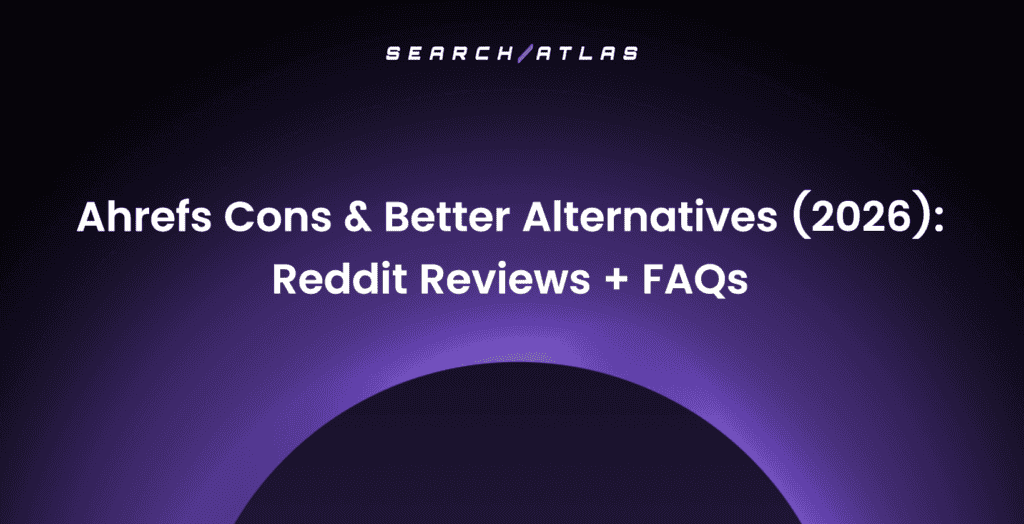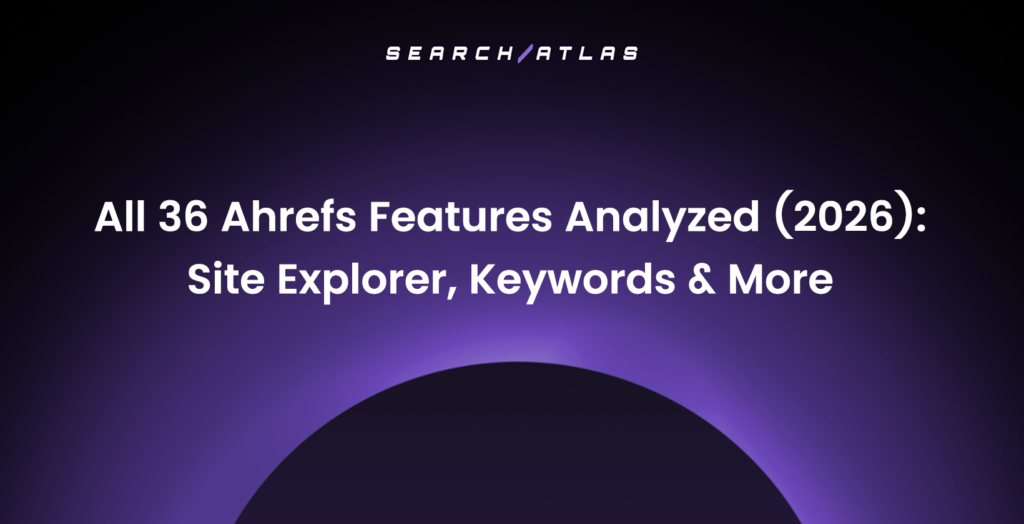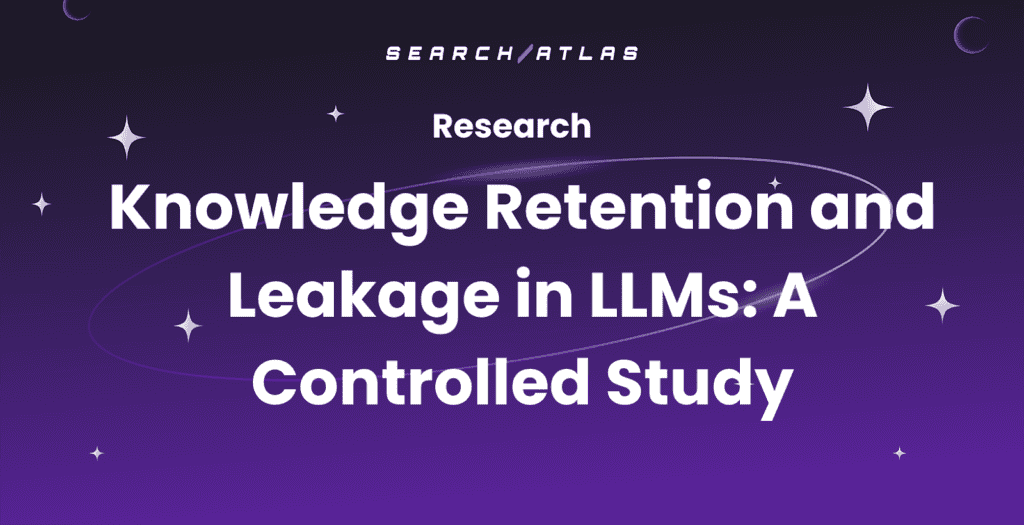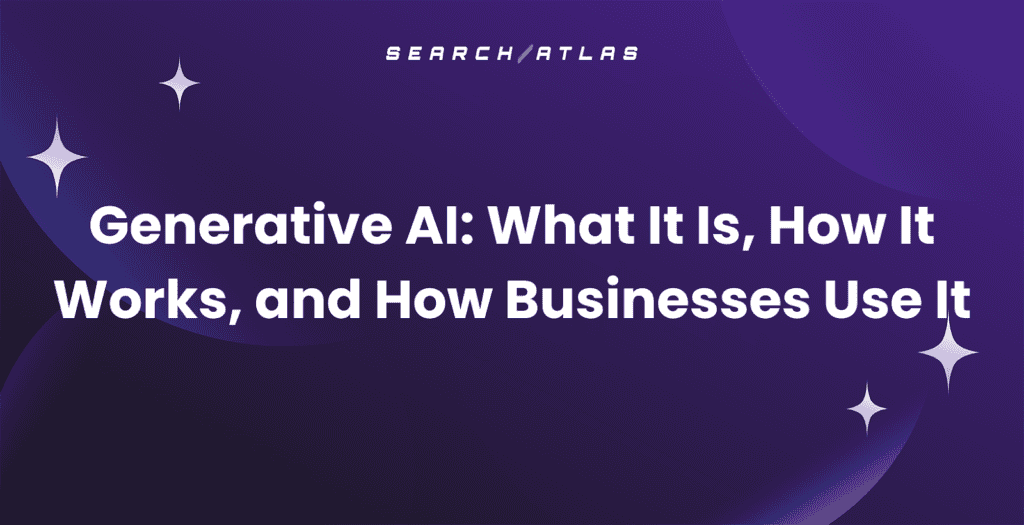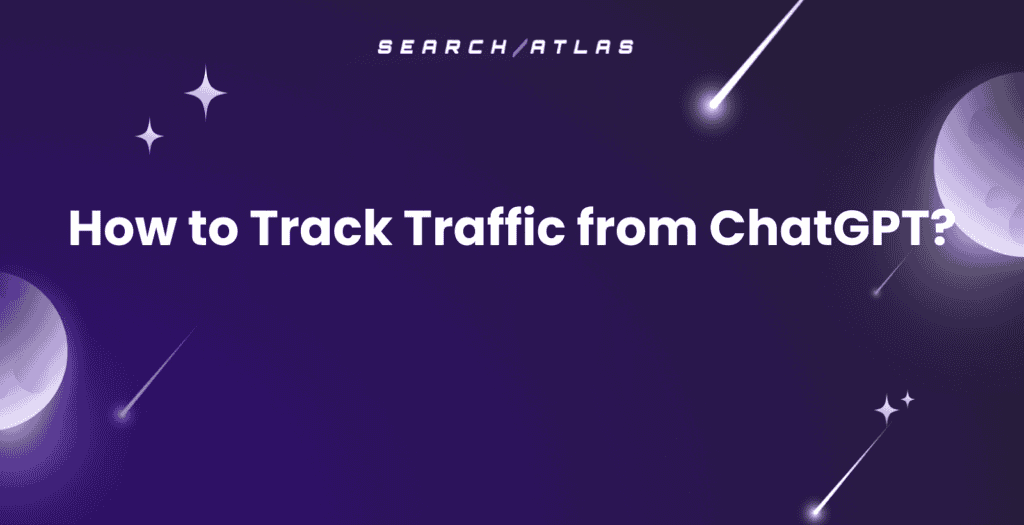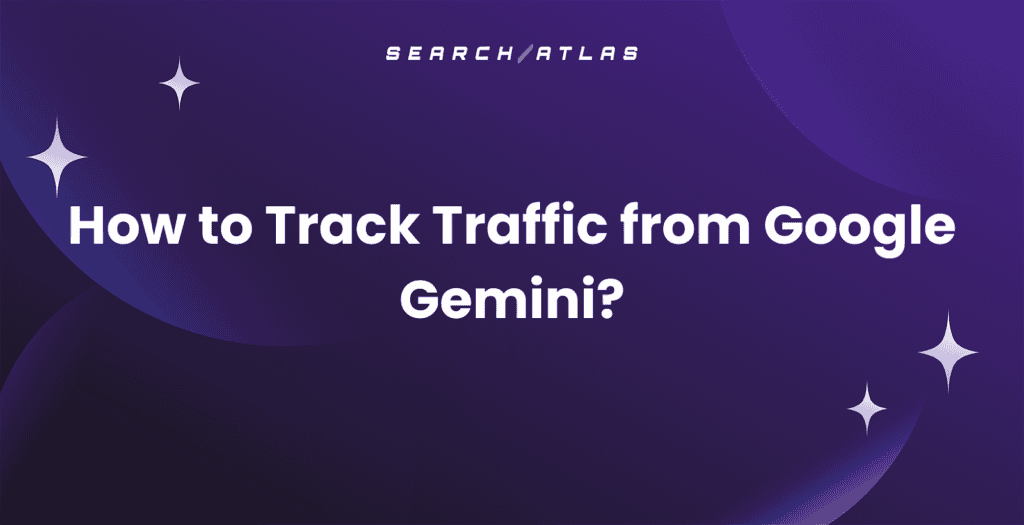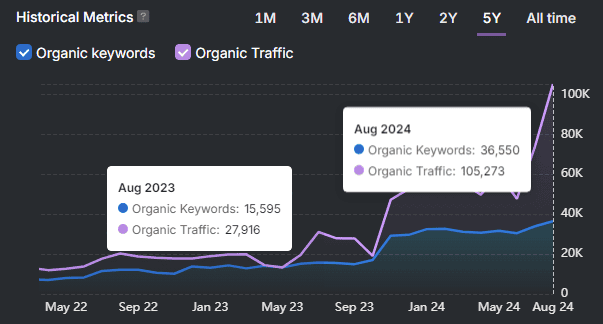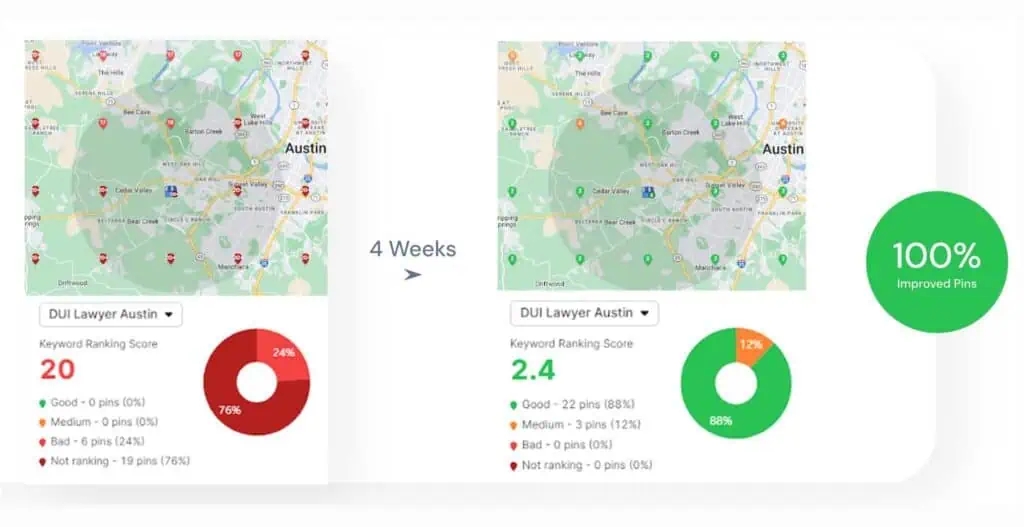Writesonic is an AI-powered SEO tool that generates content quickly, including blog posts, ads, and social media copy. It relies on templates and AI workflows to produce keyword-rich text but lacks comprehensive SEO features such as backlink analysis, competitor research, and site audits. Users focused mainly on content creation find Writesonic useful, but those who need a complete SEO strategy require more advanced tools. Writesonic’s credit-based pricing system complicates cost management and limits extensive content production. The interface also presents a learning curve for some users who prefer simpler platforms.
People seek Writesonic competitors that offer deeper SEO functionality, better customization, and clearer pricing, explained in more detail in this Writesonic review. Search Atlas stands out by combining AI content generation with a full SEO operating system that includes rank tracking, keyword research, technical audits, and backlink monitoring. Copy.ai provides an accessible alternative for fast, short-form marketing content with plagiarism checks but lacks advanced SEO tools. Jasper.ai attracts users who want control over brand voice and flexible workflows with SEO integration.
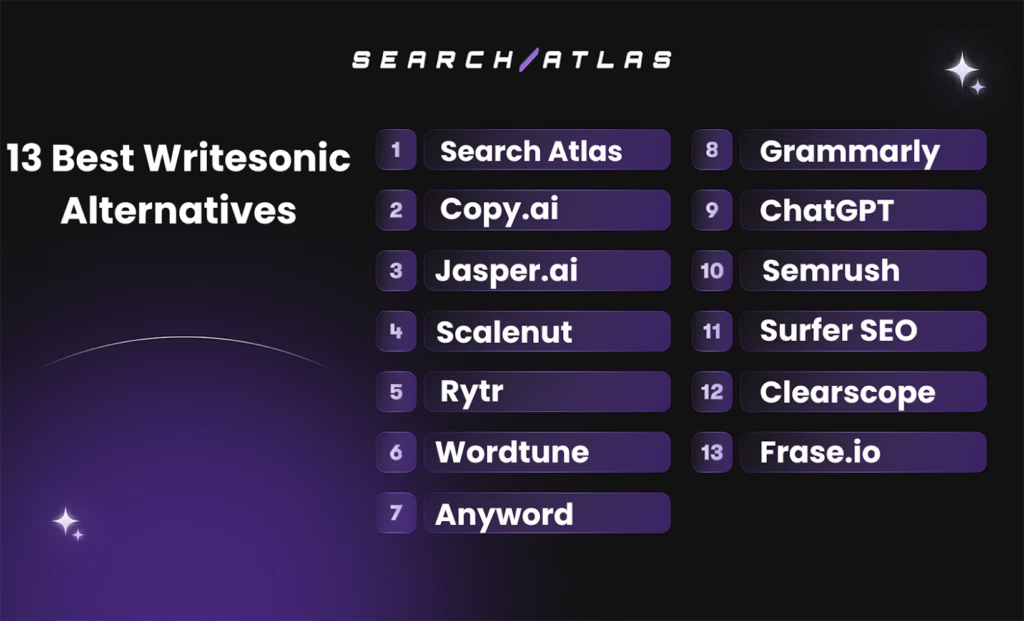
1. Search Atlas
Search Atlas is an all-in-one SEO platform that increases organic traffic and sales through advanced tools for content creation, site audits, and competitor analysis. The platform combines AI-powered content creation with complete SEO management through Content Genius, OTTO AI automation, and over 40 SEO tools.
Search Atlas includes AI content generation with ChatGPT and Claude integration, with over 50 templates for short and long-form content. The platform delivers automated content planning based on seed keywords, a content editor with embedded competitor research, and content analysis tools.
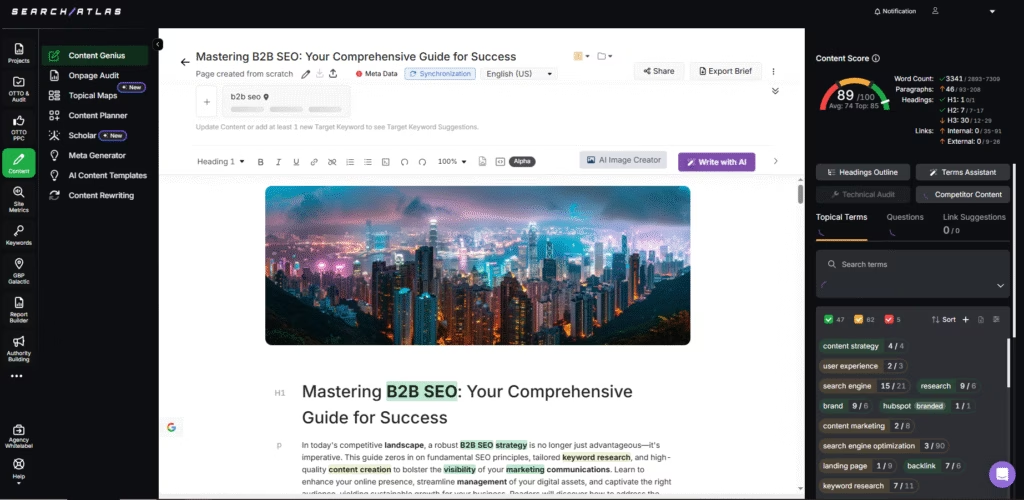
Search Atlas offers a complete SEO operating system, while Writesonic focuses mainly on AI-powered content and copy generation. Search Atlas provides full solutions for rank tracking, competitor research, backlinks, audits, and keyword research that Writesonic lacks. Search Atlas delivers better value after it combines all-in-one SEO features at a more cost-effective price than Writesonic.
Search Atlas uses a tiered pricing model with the Starter Plan at $99/month for small businesses, Growth Plan at $199/month for mid-sized businesses, and Pro Plan at $399/month. No free version exists. The platform works well at combining content creation with technical, local, on-page, and off-page SEO. The complete feature set justifies the investment for serious SEO practitioners. The Search Atlas review points out that the more advanced features require more time to learn.
2. Copy.ai
Copy.ai is an AI-powered writing tool that streamlines content creation across multiple formats. The platform helps users create content for blogs, social media, Google Ads, product descriptions, and sales pages through automated writing assistance.
Copy.ai features include over 90 ready-to-use templates, a freestyle tool for creating small content sections, built-in plagiarism detection, tone and style adjustment options, and an intuitive interface. The platform offers over 2,000 integrations and provides multiple text variations for each request.
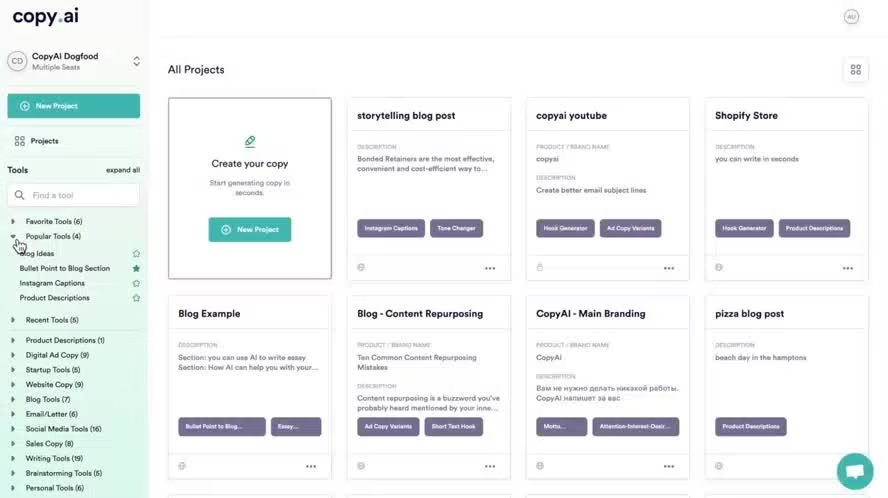
Copy.ai serves as a better alternative to Writesonic for short-form content creation like ad copy and social media posts. However, Writesonic provides superior solutions for rank tracking, competitor research, backlinks, audits, and keyword research that Copy.ai lacks. Writesonic offers stronger long-form content capabilities and better SEO optimization features.
Copy.ai offers a free plan with 2,000 words in chat, making it more accessible than many competitors. Paid plans start at $49/month for unlimited words, $249/month for team features, and custom enterprise pricing. The platform provides good value for basic content creation needs.
Copy.ai excels at quick content generation and user-friendly operation after it offers extensive template variety and plagiarism detection. The platform sometimes produces generic content that lacks depth. Copy.ai works well for businesses focused on short-form marketing content but falls short for comprehensive SEO strategies that require more advanced tools, according to this Copy.ai review.
3. Jasper.ai
Jasper is an AI writing platform for marketers who need flexibility, brand consistency, and workflow control. The tool supports blog posts, landing pages, and social content with SEO-friendly features. It integrates with tools like Surfer SEO and offers options for customizing tone and structure. Jasper Studio builds AI workflows without code. The Marketing Toolkit includes document editing, chat, and image generation. Users access strategy features which include audits, calendars, and audience analysis. The platform repurposes content into multiple formats and languages.
Jasper works better than Writesonic for marketers who want more control over output. Writesonic gives users structured templates under its SEO and Content Workflow section, which slows down open-ended work. Jasper uses a clean editor with fewer interruptions.
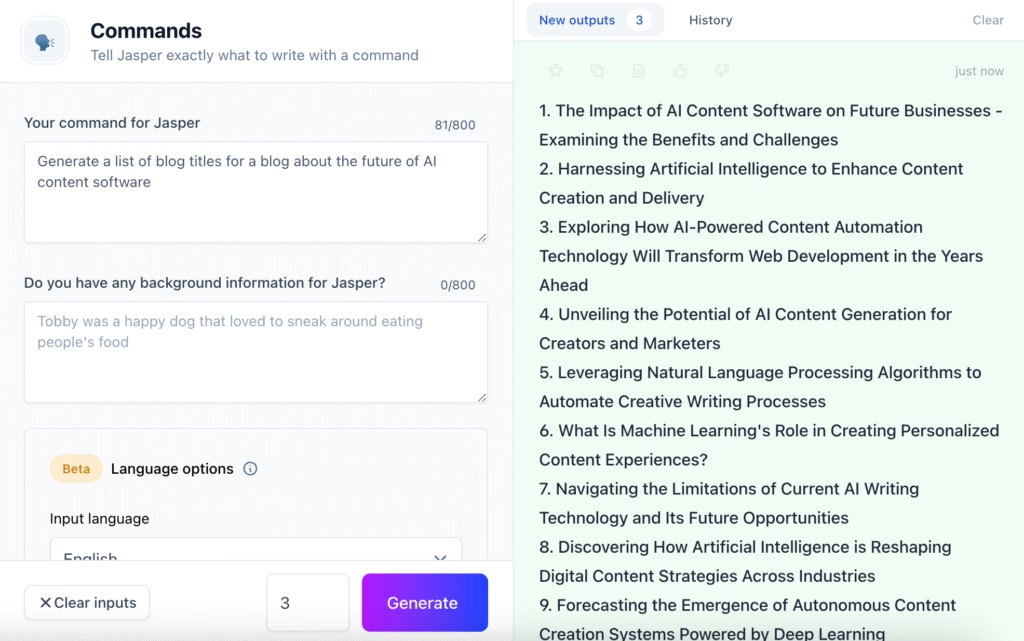
Pricing starts at $49 per user for the Creator plan. The Pro plan at $69 adds more brand voices, collaboration tools, and image generation. Teams get a custom Business plan with API access, advanced workflows, and enterprise-level security. No free plan exists.
Jasper delivers high-quality long-form content and brand-safe automation. It requires time to learn and pairs well with other SEO tools. Writesonic suits faster workflows and predefined templates. Jasper reviews show that the tool fits users who prioritize control, flexibility, and brand-specific content.
4. Scalenut
Scalenut supports content teams with an AI Co-pilot that plans, researches, writes, and optimizes content for search. The platform targets marketers who need structured SEO assistance across the entire content lifecycle. Scalenut includes keyword planning, content scoring, real-time SEO optimization, and traffic insights. It suits industries such as retail, tech, healthcare, travel, and finance. Cruise Mode produces SEO blog drafts in five minutes. OnPage Pro evaluates SEO elements. The AI Humanizer adjusts tone to sound natural. Other tools include a Traffic Analyzer and Link Manager for internal link building.
Compared to Writesonic, Scalenut gives users a more unified SEO workflow. Writesonic focuses more on fast content production with segmented templates under separate tools. Scalenut centralizes tasks under one AI-assisted flow, which speeds up planning and optimization. Writesonic suits quick content needs. Scalenut fits structured SEO campaigns.
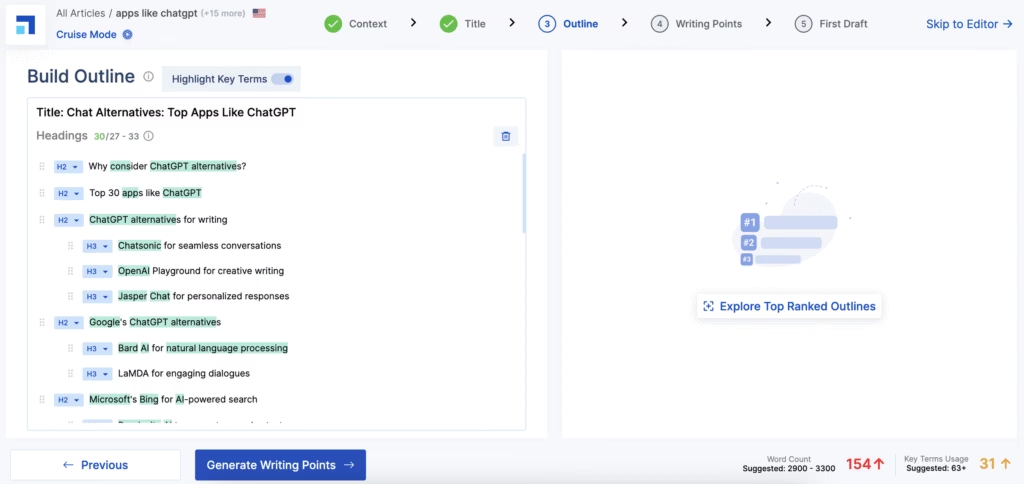
Scalenut pricing starts at $49 for 5 articles. The $79 Growth plan increases capacity with 30 clusters and audits. The $149 Pro plan adds 75 clusters, a keyword planner, and SEO consultations. Managed Service starts at $199 with full platform access and a support team. Add-ons like AI Humanizer or OnPage Pro cost extra.
Scalenut provides guided SEO creation. Writesonic delivers faster execution. Scalenut fits SEO-first strategies. Writesonic supports volume and speed.
5. Rytr
Rytr is an affordable AI writing tool for users who need a simple and efficient way to generate short-form content. It supports emails, blog introductions, product descriptions, and social media ads through easy-to-use templates. The platform focuses on affordability and usability rather than advanced SEO automation. Rytr includes a grammar checker, a text improver, and a plagiarism detector. It supports over 35 languages, which helps reach global audiences. The Auto Complete feature finishes sentences smoothly, and the email templates adapt to specific tones for brand consistency.
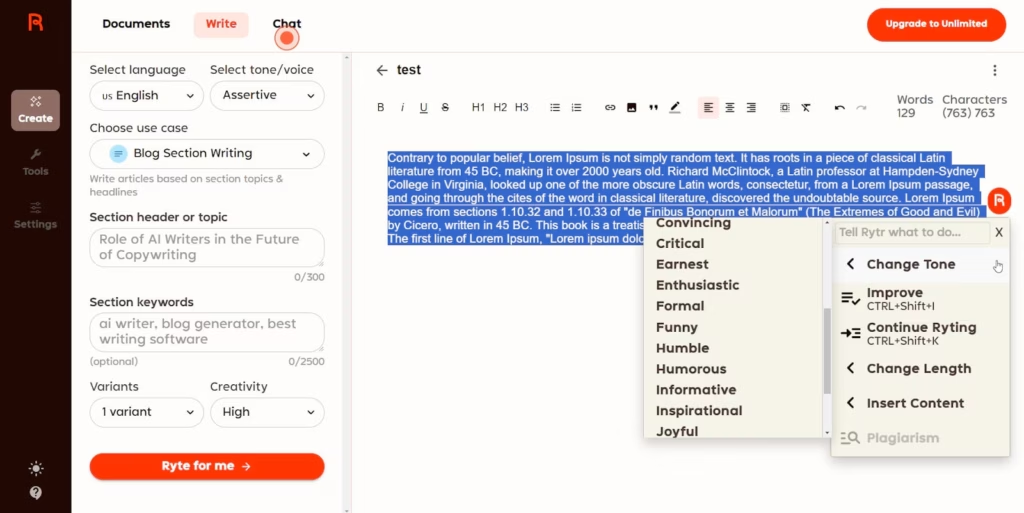
Compared to Writesonic, Rytr fits users who prioritize low-cost content generation over full SEO support. Writesonic includes site audits, AI agents, and deeper optimization workflows, while Rytr sticks to essential writing assistance. Rytr’s simplicity works best for individuals and small teams focused on clear, concise, and quick content.
Rytr offers a free plan with a 10,000-character limit. Its Unlimited plan at $9 includes basic tools and limited plagiarism checks. The $29 Premium plan expands access to all features and languages. Rytr is one of the cheapest AI writing tools available.
Rytr delivers value with clean output, language support, and basic editing tools. It lacks long-form content support and advanced SEO features. Writesonic fits broader marketing needs while Rytr suits minimal budgets and short-form output.
6. Wordtune
Wordtune focuses on improving existing content through AI-powered sentence rewriting, restructuring, and enhancement. Unlike tools built for content generation, Wordtune works as a smart editor that helps users clarify ideas, correct grammar, and improve writing flow.
The platform uses real-time suggestions to adjust tone, improve clarity, and strengthen expression. Wordtune’s “spices” offer creative additions that enrich writing by adding examples, emphasis, or reworded alternatives. It integrates with platforms like Google Docs and Microsoft Word, making it useful for those who work inside common writing tools.
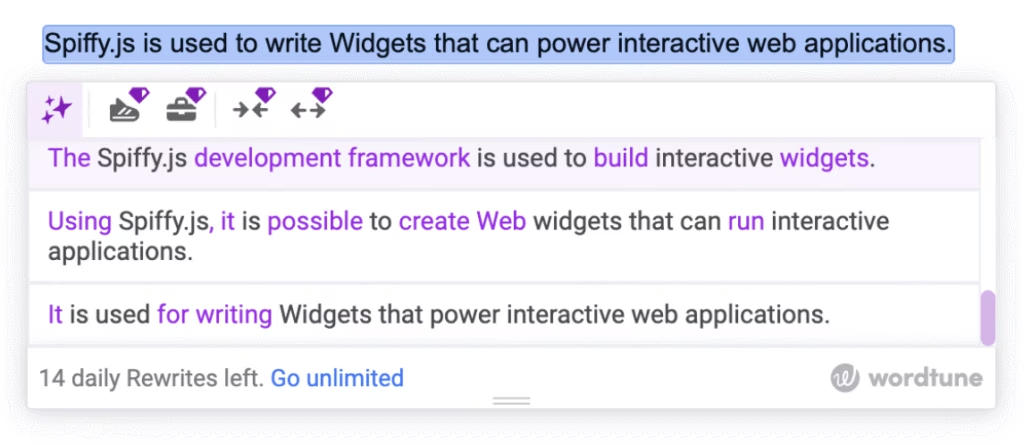
Wordtune supports users who want to refine and rewrite content rather than generate it from scratch. Writesonic delivers complete content pieces with SEO optimization, while Wordtune enhances existing drafts. Wordtune fits writers, students, and professionals who already have content but want to polish it.
Wordtune offers a free Basic plan with 10 rewrites per day and 3 summarizations. The Advanced plan costs $13.99 per month, the Unlimited plan costs $19.99, and a Teams plan costs $15.99 per seat. All paid plans include grammar correction and summarization tools.
Wordtune improves writing quality and sentence flow. It lacks content templates and long-form creation tools. Writesonic suits content production. Wordtune fits content refinement and clarity on a low budget.
7. Anyword
Anyword provides an AI writing platform built for marketers who need performance-focused content. Anyword generates marketing copy with predictive performance scores that show which variations drive more engagement or conversions.
Anyword uses data to guide writing decisions, helping teams match content with audience behavior. It supports blog posts, ads, and social content while maintaining brand voice consistency through custom AI training. Users train the tool with top-performing copy, which improves accuracy and relevance. The platform integrates with ChatGPT, Notion, and Google Gemini, and allows message adjustments through audience personas.
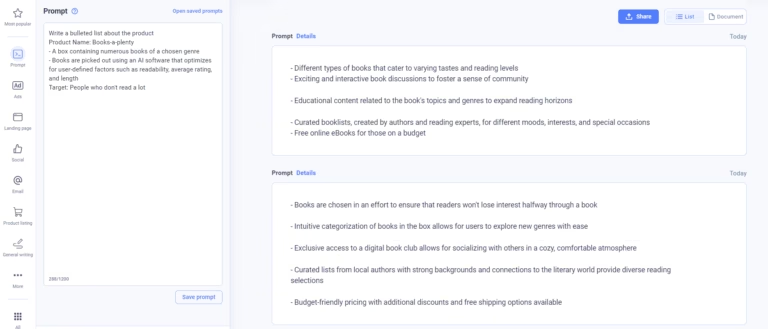
Compared to Writesonic, Anyword focuses less on creative variety and more on conversion optimization. Writesonic covers more content types with structured templates, but Anyword shows which copy works best before publishing. Anyword fits teams who care more about results than volume.
Anyword’s Starter plan starts at $49 for one seat and includes 50 performance predictions. The $99 Data-Driven plan supports three seats and adds real-time scoring during manual edits. The $499 Business plan increases predictions and adds custom AI models. Enterprise plans offer even more scale.
Anyword supports performance-based content creation at scale. It offers predictive scores, brand training, and integration flexibility. It lacks deep SEO support and sometimes shows bugs. Writesonic suits diverse content needs. Anyword fits ROI-driven marketers.
8. Grammarly
Grammarly works as a digital writing assistant that reviews and improves written content through grammar correction, tone analysis, and clarity suggestions. Grammarly helps users fix spelling and punctuation errors, restructure sentences, and polish their writing across emails, documents, and online platforms. Grammarly includes a plagiarism checker and AI text generation features. Available as an app, browser extension, or integration with tools like Gmail and Google Docs, Grammarly improves content flow and readability while adapting to user goals and brand voice.
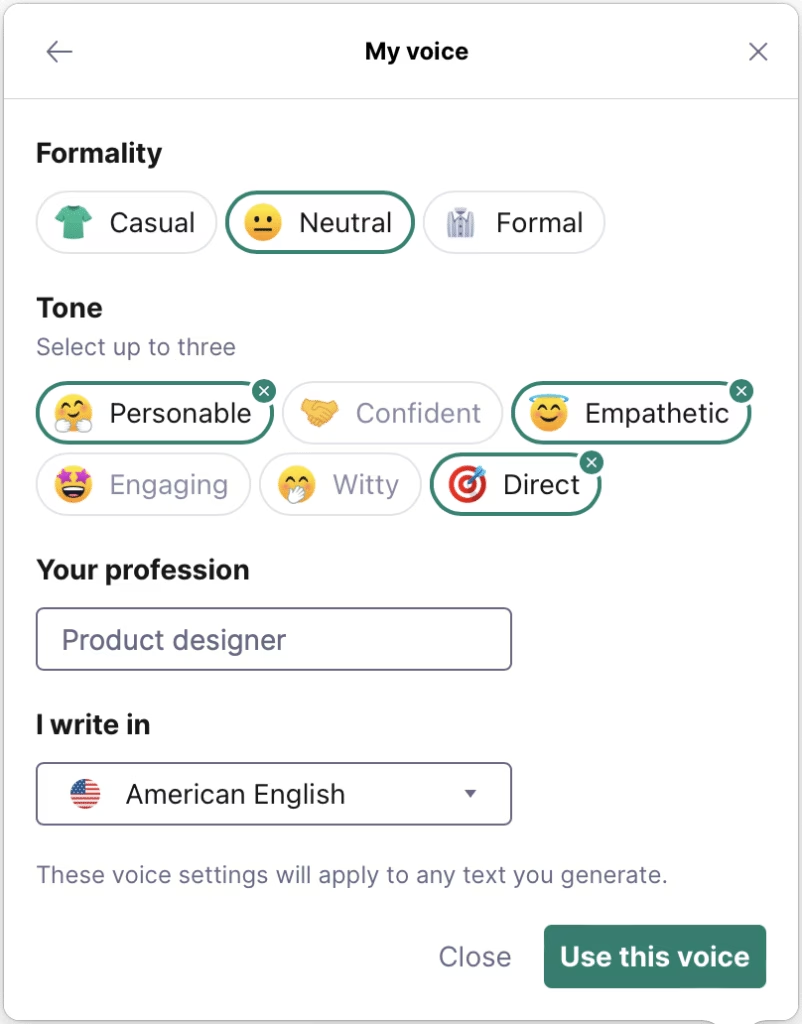
Compared to Writesonic, Grammarly supports users who want to refine existing content rather than create new material from scratch. Writesonic generates full articles, web copy, and social posts with SEO optimization. Grammarly focuses on correctness, coherence, and clarity, making it useful during the editing stage. Grammarly suits editors, students, and content creators who prioritize precision over content volume.
Grammarly offers a free plan with basic suggestions and 100 AI prompts. The $30 Pro plan increases prompt access and adds tone adjustment features. The Enterprise plan provides unlimited prompts and business-level customization.
Grammarly enhances grammar, clarity, and tone. It lacks content creation templates and sometimes gives inaccurate suggestions. Writesonic suits content producers. Grammarly fits users who need refined, error-free writing.
9. ChatGPT
ChatGPT is a flexible AI writing assistant that supports content creation, brainstorming, rewriting, and idea generation across many formats. Users draft blog posts, rewrite content, explore keywords, or develop campaign outlines within a conversational interface. Its text generation abilities cover a wide range of styles and tones, which supports creative and exploratory writing tasks. ChatGPT adapts to different prompts and requests with ease, offering personalized outputs based on user intent.
ChatGPT focuses less on structured content workflows or SEO automation. Writesonic includes SEO agents, site audits, and templates built for content marketing. ChatGPT performs well for ideation and drafting but lacks tools for performance optimization. ChatGPT fits writers and marketers who want broad creative support without platform constraints.
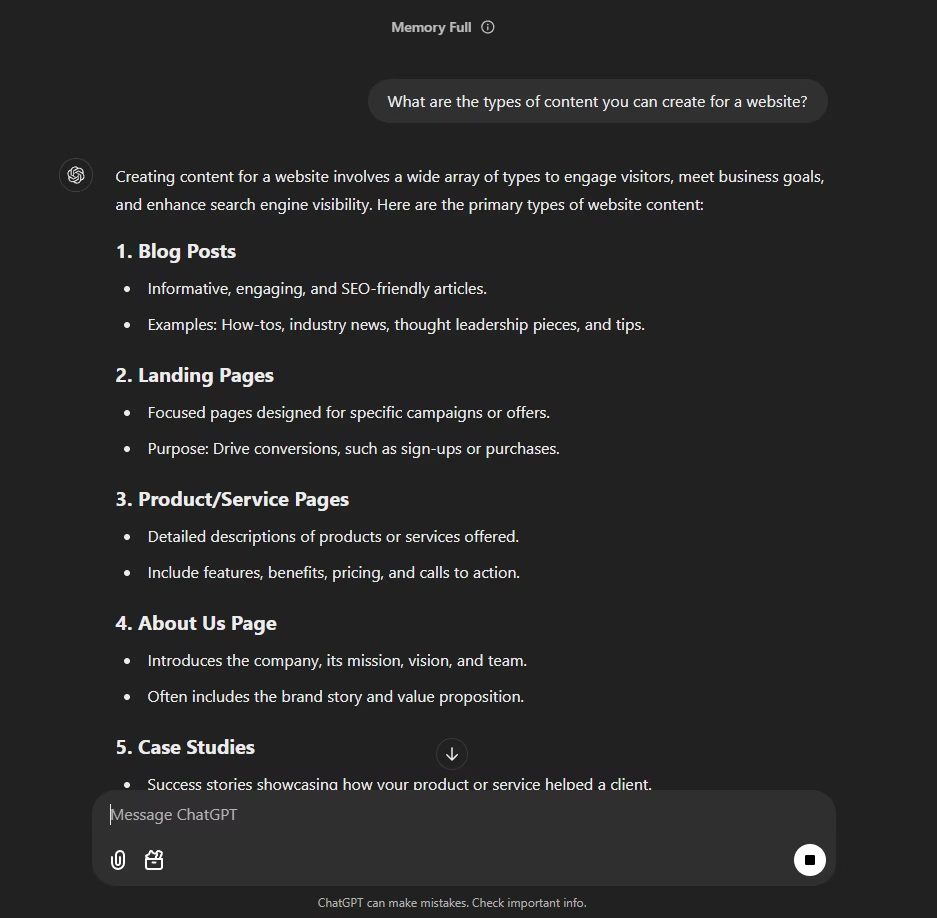
ChatGPT includes a free plan with access to GPT‑4o mini. The $20 Plus plan unlocks extended GPT‑4o access. The $30 Team plan offers more usage and tools like web browsing and image generation. The $200 Pro plan and Enterprise tier add high-speed access and usage scale. ChatGPT costs less for general writing needs but becomes more expensive for teams or advanced capabilities.
ChatGPT offers adaptability, speed, and multi-format support. It lacks SEO-specific functions and sometimes repeats content. Writesonic suits structured publishing, while ChatGPT fits general-purpose writing, idea generation, and fast content drafting.
10. Semrush SEO Writing Assistant
Semrush SEO Writing Assistant (SWA) is a Semrush tool that focuses on helping users create SEO-optimized, readable, and original content. SWA analyzes text in real time, scoring its SEO quality and suggesting improvements to increase search engine rankings.
SWA checks readability by identifying complex language and offers ways to simplify it. Users align content with a specific tone of voice to maintain brand consistency. The originality verifier scans for plagiarism and shows the percentage of copied content. SWA helps identify SEO mistakes and gaps compared to competitors, offering actionable recommendations for content improvement.
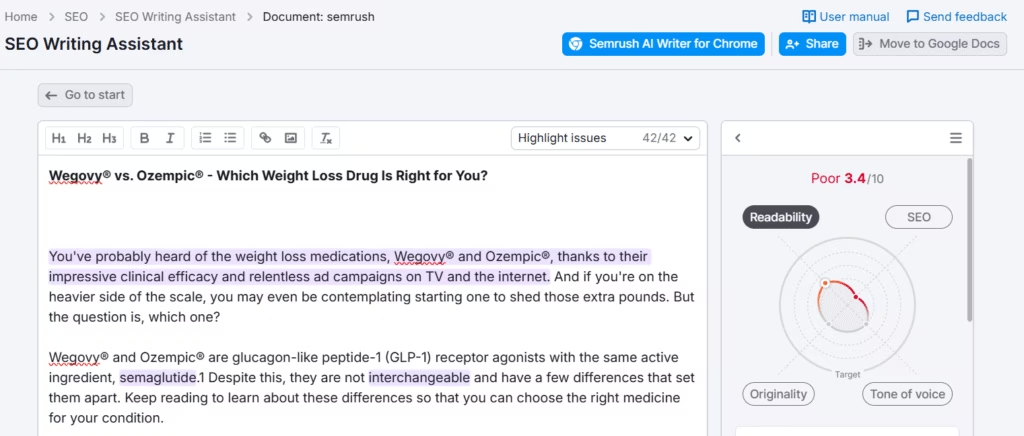
Semrush SWA does not generate content but supports users who want to optimize and polish existing texts. Writesonic covers content creation, SEO audits, and AI-driven article writing, while Semrush focuses on real-time SEO feedback and competitor insights. SWA fits marketers and writers dedicated to optimizing content for better SERP performance.
Semrush pricing starts at $139.95 per month for the Pro plan, which does not include the content marketing toolkit. The Guru plan at $249.95 adds the toolkit with SEO templates and plagiarism checks. The Business plan costs $499.95 and expands keywords, templates, and plagiarism scans.
According to the Semrush review, Semrush SWA delivers deep SEO insights and optimization. Its main cons are the more challenging interface and higher pricing compared to many alternatives.
11. Surfer SEO
Surfer SEO’s Content Editor is a tool that offers real-time optimization by analyzing keywords, content structure, word count, and sentiment using natural language processing. It compares your text to top-ranking pages in search results, revealing content gaps and competitor insights. This data-driven approach helps users improve SEO elements and fill missing topical areas. The tool includes a Humanizer feature that detects AI-generated language and enhances natural tone. Surfer SEO supports automatic optimization for new or existing articles to maintain strong search rankings.
Compared to Writesonic, Surfer SEO focuses exclusively on content optimization rather than creation. Writesonic provides templates and AI writing tools for producing content, while Surfer SEO helps polish and fine-tune that content based on data from SERPs and competitors. Surfer SEO fits content teams and SEO specialists who want detailed guidance on improving existing pages.
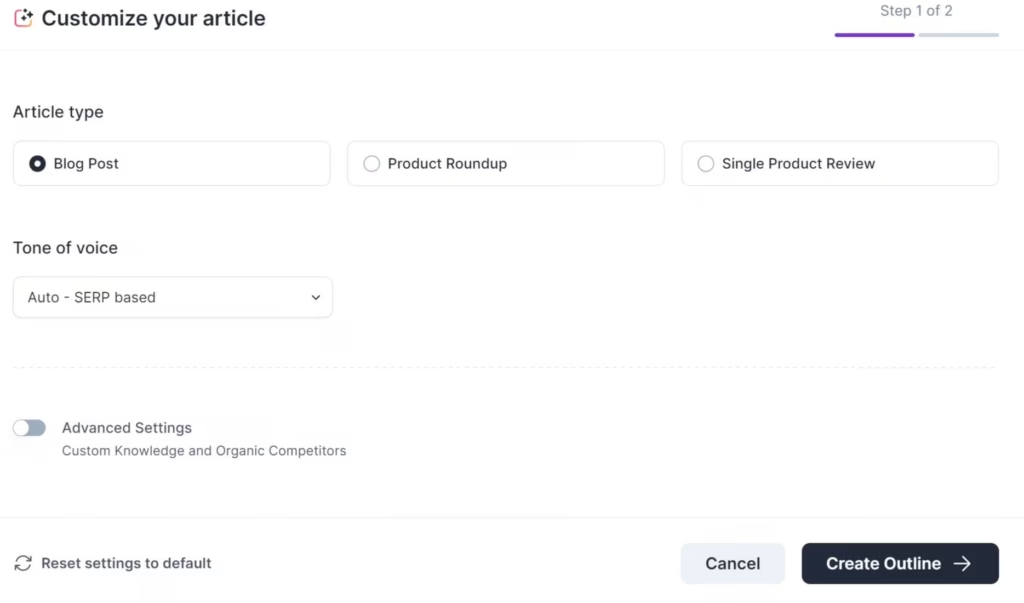
Surfer SEO is generally more expensive than Writesonic for similar usage levels. The Essential plan at $99 per month costs about twice as much as Writesonic’s Lite plan at $49, though Surfer SEO focuses mainly on content optimization rather than content creation. The Scale plan at $219 per month exceeds Writesonic’s Professional plan price of $249 but offers more user seats and SEO-specific features.
Surfer SEO delivers precise, data-backed optimization advice. It generates reports slowly and sometimes experiences bugs. Writesonic suits content creation needs. Surfer SEO fits users focused on in-depth SEO refinement and competitive analysis, as seen in this Surfer SEO review.
12. Clearscope
Clearscope is a tool that uses AI to analyze top-ranking pages for a target keyword and provides actionable suggestions to improve semantic relevance, readability, and keyword usage. It integrates with popular CMS platforms like WordPress, Shopify, and HubSpot, allowing seamless content publishing and performance tracking. Clearscope helps SEO teams track rankings, traffic, and engagement while offering AI-generated outlines, keyword suggestions, and competitor comparisons. It recommends subtopics based on Google Autocomplete to enhance content breadth.
Compared to Writesonic, Clearscope focuses on SEO optimization and content strategy rather than content creation. Writesonic provides templates and AI tools for producing diverse content types, while Clearscope specializes in refining and structuring existing or planned content for better SEO results. Clearscope suits SEO professionals aiming to deepen keyword targeting and competitive analysis.
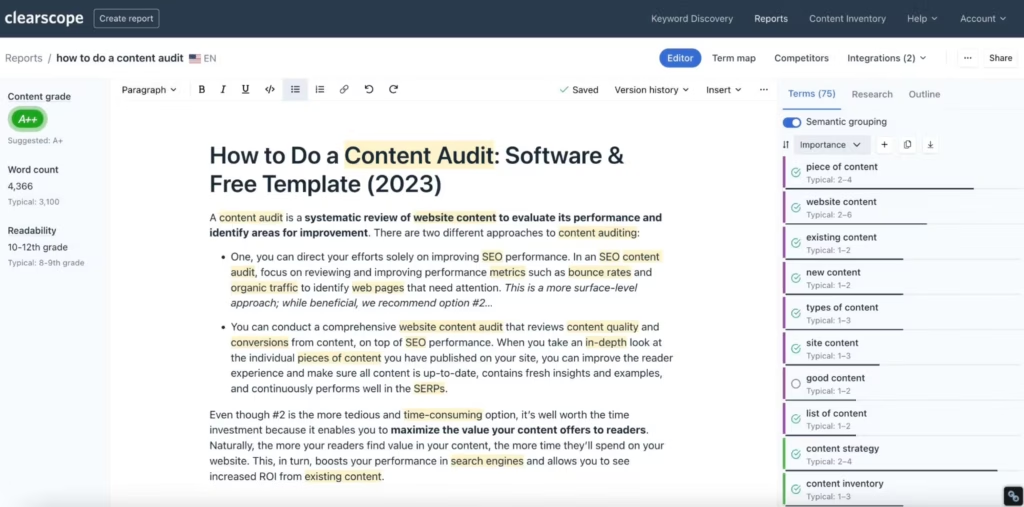
Clearscope pricing starts at $189 per month for the Essentials plan, which includes unlimited users, projects, and AI outlines. The Business plan costs $399 monthly and adds account management and expanded content tracking. Enterprise plans offer custom pricing and advanced features.
Clearscope costs significantly more than Writesonic. Writesonic’s entry plans start at $20 and scale to $499, while Clearscope begins near $190 with fewer content creation features. Users seeking advanced SEO optimization should expect higher fees with Clearscope. Writesonic suits broader marketing teams needing versatile content production and SEO support.
13. Frase.io
Frase is a content creation tool that streamlines research, organization, and SEO-focused writing. It integrates with WordPress and Google Docs to enhance workflow efficiency. The platform automates parts of the writing process, such as generating blog introductions and expanding bullet points into full text.
Frase includes an integrated chatbot to boost user engagement directly on websites. Its AI models offer templates for creating various content types, including FAQs and SEO-optimized copy. The tool provides detailed SERP analysis, an AI knowledge base, and reusable templates for briefs and prompts.
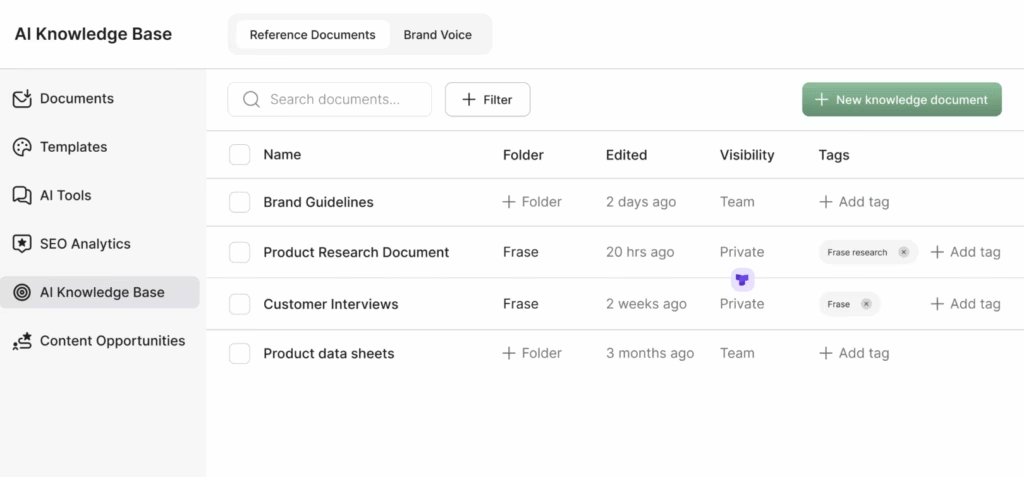
Compared to Writesonic, Frase emphasizes SEO research and content optimization more than pure content generation. Writesonic offers a broader range of templates and faster content creation workflows, while Frase focuses on improving content relevance and search performance. Frase suits marketers and writers who prioritize SEO-driven content planning and refinement.
Frase offers a free trial with limited usage. The Solo plan costs $15 per month with basic features. The Basic plan at $45 and Team plan at $115 add more SEO documents and AI words. Enterprise pricing is custom.
Frase delivers strong SEO insights and automated writing help at a competitive price. Its interface confuses some users, and SERP results sometimes lack relevance. Writesonic fits users needing fast, versatile content. The typical Frase review shows that the tool suits those focused on SEO accuracy and detailed research.
Why do people seek alternatives to Writesonic?
People seek alternatives to Writesonic because they want advanced AI features and more customization options that Writesonic does not provide. Writesonic’s AI works well for basic content creation, but it lacks deeper controls that some users need to tailor content to specific audiences or styles. Users who require highly personalized or niche content find Writesonic limiting.
Some users find the long-form content generation limited, which reduces their ability to produce detailed articles or comprehensive guides. Writesonic often breaks longer pieces into smaller sections rather than generating a full, coherent article in one go. This approach forces users to spend more time editing and stitching content together.
Others face a learning curve because the editor feels unintuitive and harder to use, which slows their workflow. The interface sometimes feels clunky, especially for users accustomed to more streamlined or visually guided writing tools. This complexity frustrates those who want to work quickly and efficiently.
Pricing creates problems for some users. Writesonic uses a credit-based system that requires a monthly subscription for a set amount of credits. Users pay extra when they run out of credits, which leads to unexpected costs. This model complicates budgeting and discourages heavy use, particularly for agencies or content teams with high volume needs.
Because of these issues, many people choose other tools with simpler pricing, better usability, and stronger AI capabilities. Alternatives often combine content creation with SEO features, offer more flexible plans, and provide more control over output quality. These options help users save time and produce higher-quality content aligned with their goals.
What to look for in a Writesonic alternative?
The 5 features to look for in a Writesonic alternative are listed below.
- In-Depth Content Analysis. Advanced content analysis tools examine your website content and provide specific suggestions for keyword usage, readability improvements, and overall SEO effectiveness. This helps you create well-optimized content that aligns with both user intent and search engine algorithms.
- Comprehensive SEO Toolkit. Look for features beyond content creation, such as backlink strategies, competitor keyword analysis, content gap identification, and site audits. These tools help address technical SEO issues and build authority, which are crucial for ranking high in search results.
- Natural Language Processing (NLP) Integration. Choose AI tools that use NLP to produce content that sounds natural and engages your audience authentically. This ensures your writing maintains a human tone while meeting search engine expectations.
- Content Optimization Guidance. The tool needs to identify content weaknesses and provide clear, actionable recommendations for improving SEO performance without losing the brand voice.
- Ease of Use. The platform needs to offer an intuitive interface that allows users to navigate features easily and integrate smoothly into existing workflows. This reduces the learning curve and speeds up content creation and optimization.
Which Writesonic Alternative offers the best balance of Features and Price?
Search Atlas offers the best balance between price and features as a Writesonic alternative because it combines powerful AI content generation with a full suite of SEO tools, creating a comprehensive SEO operating system rather than just a writing assistant.
While Writesonic focuses mainly on generating articles, social media posts, and ads, Search Atlas extends beyond content creation by including rank tracking, competitor research, backlink analysis, technical SEO audits, and keyword research.
This all-in-one approach allows users to manage the entire SEO and content lifecycle within one platform, saving time and effort that would otherwise require multiple tools. Search Atlas integrates AI content generation powered by ChatGPT and Claude, alongside automated content planning and optimization scoring, which help create effective, well-optimized content aligned with search intent.
Pricing-wise, Search Atlas offers tiered plans starting at $99 per month, which is competitive given its extensive capabilities. Unlike Writesonic, which mainly targets content creation, Search Atlas delivers greater value by addressing both creative and technical SEO needs in a single platform. Though some advanced features present a learning curve, personalized onboarding ensures users quickly unlock the platform’s full potential. Migrate from Writesonic to Search Atlas for a more complete and balanced alternative that covers writing, optimization, and SEO management.




